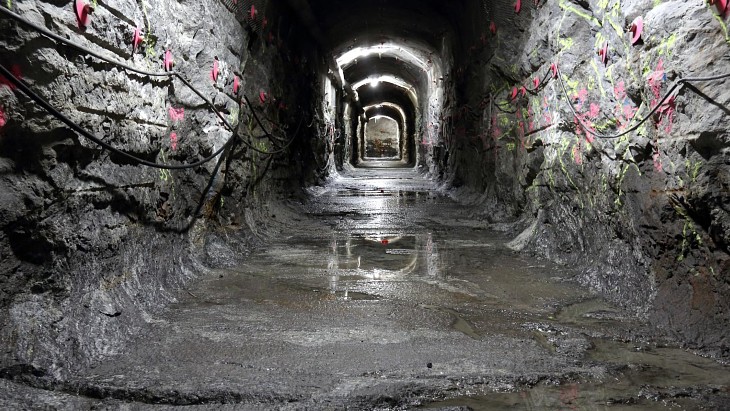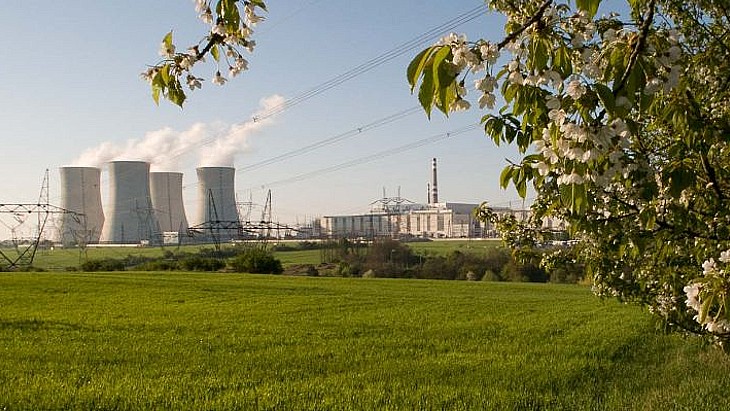The Working Group I report addresses the most up-to-date physical understanding of the climate system and climate change, bringing together the latest advances in climate science, and combining multiple lines of evidence from paleoclimate, observations, process understanding, global and regional climate simulations. It shows how and why climate has changed to date, and the improved understanding of human influence on a wider range of climate characteristics, including extreme events.
The report - titled Climate Change 2021: the Physical Science Basis - was written by 234 authors from 66 countries. Originally scheduled for release in April 2021, the report was delayed for several months by the COVID-19 pandemic. It was approved on 6 August by 195 member governments of the IPCC, through a virtual approval session that was held over two weeks starting on 26 July. This is the first time that the IPCC has conducted a virtual approval session for one of its reports.
Emissions of greenhouse gases from human activities are responsible for approximately 1.1°C of warming since 1850-1900, the report says. Averaged over the next 20 years, global temperature is expected to reach or exceed 1.5°C of warming.
The impacts of climate change are already being seen around the world, the report notes. "Many of the changes observed in the climate are unprecedented in thousands, if not hundreds of thousands of years, and some of the changes already set in motion - such as continued sea level rise - are irreversible over hundreds to thousands of years," it says.
The report projects that in the coming decades climate changes will increase in all regions. For 1.5°C of global warming, there will be increasing heat waves, longer warm seasons and shorter cold seasons. At 2°C of global warming, heat extremes would more often reach critical tolerance thresholds for agriculture and health, the report shows.
However, strong and sustained reductions in emissions of carbon dioxide (CO2) and other greenhouse gases would limit climate change, the IPCC says. While benefits for air quality would come quickly, it could take 20-30 years to see global temperatures stabilise. The assessment is based on improved data on historical warming, as well as progress in scientific understanding of the response of the climate system to human-caused emissions.
"Stabilising the climate will require strong, rapid, and sustained reductions in greenhouse gas emissions, and reaching net zero CO2 emissions," said IPCC Working Group I Co-Chair Panmao Zhai. "Limiting other greenhouse gases and air pollutants, especially methane, could have benefits both for health and the climate."
For the first time, the Sixth Assessment Report provides a more detailed regional assessment of climate change, including a focus on useful information that can inform risk assessment, adaptation, and other decision-making, and a new framework that helps translate physical changes in the climate - heat, cold, rain, drought, snow, wind, coastal flooding and more - into what they mean for society and ecosystems.
This regional information can be explored in detail in the newly-developed Interactive Atlas, which provides flexible spatial and temporal analyses of much of the observed and projected climate change information underpinning the Working Group I contribution to the AR6, including regional synthesis for climatic impact-drivers. The IPCC has also published regional fact sheets, the technical summary and the underlying report related to the atlas.
Contributions to the AR6 from the IPCC's other two working groups - Working Group II, dealing with impacts, adaptation and vulnerability; and Working Group III, dealing with the mitigation of climate change - will be finalised in 2022. The AR6 Synthesis Report will be completed in the second half of 2022.
Time to act
"This report is a reality check," said IPCC Working Group I Co-Chair Valérie Masson-Delmotte. "We now have a much clearer picture of the past, present and future climate, which is essential for understanding where we are headed, what can be done, and how we can prepare.
"It has been clear for decades that the Earth's climate is changing, and the role of human influence on the climate system is undisputed," Masson-Delmotte added. "Yet the new report also reflects major advances in the science of attribution - understanding the role of climate change in intensifying specific weather and climate events."
UN Secretary-General António Guterres said the working group's report was nothing less than "a code red for humanity. The alarm bells are deafening, and the evidence is irrefutable".
He said, "We must act decisively now, to keep 1.5 [degrees of temperature increase] alive ... Inclusive and green economies, prosperity, cleaner air and better health are possible for all, if we respond to this crisis with solidarity and courage."
Nuclear ready to continue contributing
World Nuclear Association Director General Sama Bilbao y León said the new report highlights the need to use all tools currently available to decarbonise all sectors of the economy whilst investing in new technologies.
"As the single largest source of low-carbon electricity in advanced economies, nuclear energy is ready to continue to provide reliable 24/7 affordable clean electricity in the more than 30 countries that already use it," she said. "Additionally, nuclear energy is eager to join forces with other low-carbon technologies to accelerate the decarbonisation of the global economy."
Bilbao y León called on decision makers to take urgent action to support nuclear power plants threatened with early closure because of the "distorted markets" in which they operate. These markets, she said, "fail to value their climate and energy security benefits".
"Governments, regulators, and industry must work together to accelerate the deployment of new nuclear projects, large and small, including small modular reactors and advanced nuclear technologies, so that nuclear power can help decarbonise sectors beyond electricity supply, providing domestic and industrial process heat, producing hydrogen and decarbonising the transport sector."
The report's release comes ahead of the 26th UN Climate Change Conference of the Parties (COP26), being held in Glasgow from 31 October to 12 November this year.

.jpg)





_53514_33880.jpg)






